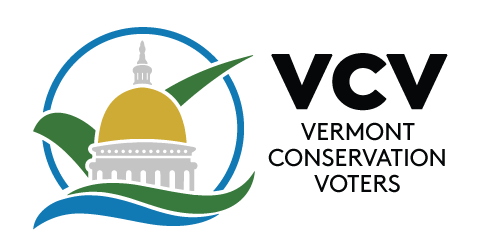Clean Water and Climate Resilience
The climate crisis is already threatening the health and well-being of our communities, and we must work swiftly and strategically to strengthen our resilience. One critical area of work includes reducing the risk of future flooding. Fortunately, there are a number of steps Vermont can take this year. Policy solutions include better regulating new development in river corridors so we are not putting future developments at risk and exacerbating downstream flooding. We must also advance our work to better protect riparian vegetation along streams. Further, wetlands play a vital role by helping control flooding, minimizing erosion, purifying water, and offering habitat for plants and wildlife. Vermont has lost an estimated 35% of our wetlands, and must enact a “net gain” policy to protect and restore these critical features on our landscape. Dams also play an important role in flood mitigation, with flood control dams that need more consistent state oversight, inspections, and maintenance, and numerous small dams that exacerbate flooding and should be removed.
explore more
clean water and climate resilience
In confronting the challenges posed by our changing climate, we must secure revenue streams to invest in resilience initiatives. We must hold the largest fossil fuel companies accountable for helping pay for the damage their products have caused in Vermont. We must simultaneously identify immediate revenue streams to put into a climate resilience fund. Further, significant federal funding is available for these types of projects, and Vermont needs to build the infrastructure and capacity to ensure we can successfully apply for and leverage federal funding opportunities to the maximum degree possible.
TAKE ACTION
2024 Legislative Priorities
Better protect river corridors by implementing statewide regulations to safeguard vital river ecosystems, keep future development out of harm’s way, and use natural systems to mitigate flood risks.
Implement a wetland “net gain” policy to better protect and restore these vital resources to enhance flood resilience.
Improve dam safety by consolidating oversight and strengthening maintenance requirements for dam owners, while investing in the strategic removal of dams that exacerbate flooding and pose a risk to public safety.
Invest in Climate Resilience by holding fossil fuel companies accountable for helping pay for the damage their products have caused in Vermont, creating a Climate Resilience Fund that can help Vermont communities immediately invest in resilience projects, and create a Vermont Green Bank structure to maximize uptake of currently-available federal funds for resilience initiatives.

Jon Groveman
Policy and Water Program Director
Vermont Natural Resources Council
Jon has served as the Policy and Water Program Director for the Vermont Natural Resources Council (VNRC) since 2015. Jon previously held the positions of Water Program Director and General Counsel at VNRC before being asked in 2009 to serve as General Counsel for the Vermont Agency of Natural Resources. In 2013, Jon was appointed to Chair the Natural Resources Board (NRB), which administers the Act 250 program, Vermont’s statewide land use program. In addition Jon served as Director of the Vermont Water Resources Board, Director of the Law Center for the Vermont League of Cities and Towns, Act 250 Land Use Attorney for the State of Vermont, and in the Legislative and Legal Affairs Deparment of the New York City Department of Environmental Protection. Jon received a B.A. in Psychology from SUNY Binghamton in 1988 and his J.D. from Quinnipiac College School of Law in 1991.
